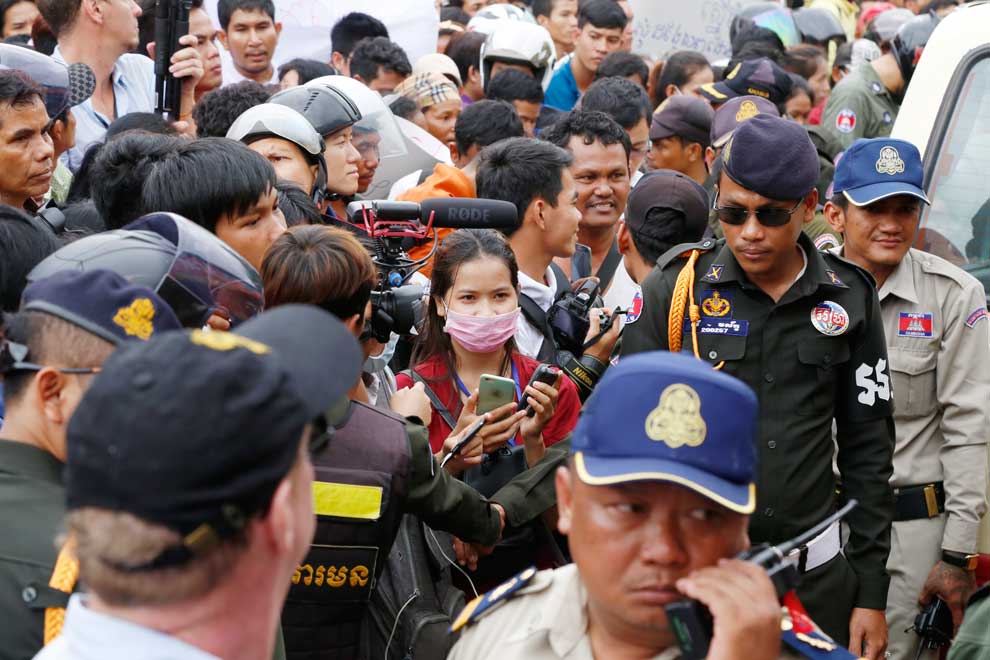
Journalists gather at the Phnom Penh Municipal Court last year. Heng Chivoan
At least 31 out of 72 journalists who were either attacked or threatened with violence while doing their job last year were imprisoned, according to the Cambodian Journalists Alliance Association (CamboJA).
In its 28-page report published on March 29, the association detailed harassment cases against journalists who it said were often unfairly targeted for exercising their legal rights and freedom in reporting stories.
“CamboJA has recorded 35 cases of harassment against 72 journalists in 2020. The most common types of harassment were imprisonment and violence.
“At least 31 journalists were imprisoned [about 43 per cent of cases] and 22 journalists were either attacked or threatened with violence while on duty,” it said in the “Cambodian Journalism Situation Report 2020”.
CamboJA executive director Nop Vy said the finding showed that journalists who covered and reported on the interests of the military and powerful officials were still being persecuted through the judiciary, which applied the Criminal Code instead of the press law. He said journalists were also vulnerable to repeated assault and other forms of violence.
“We call on the government to ensure the safety and security of all journalists so that they can exercise their rights to freely report without fear,” he said.
Ministry of Information spokesman Meas Sophorn dismissed the findings as an accusation without legal basis against law enforcement agencies in Cambodia.
He said authorities only took measures against journalists who have broken the law.
“In the past, law enforcement agencies have handled cases based on facts and the law. Therefore, enforcing the law against journalists who violate the law is not tantamount to harassment, threat or intimidation,” Sophorn said.
“It means that if a journalist acts in a proper and professional manner with ethics, he or she can fulfill their role in Cambodia freely,” he added.
Huy Vannak, president of the Union of Journalist Federations of Cambodia (UJFC), said most of the cases resulted from unethical and unprofessional journalists.
“We recognise that there are journalists who face legal challenges in court. But most of them are online and unprofessional journalists. If journalists are from a professional institution, they don’t face any problems in their profession.”
“At a a glance, it seems that authorities are brutal. But it is actually because of some unethical journalists. Their unprofessinalism makes a bad impression on the public and it affects professional journalists,” he said.
But CamboJA considers the ongoing imprisonment, detention and physical threats against journalists as undermining the media’s role in a democratic society and strikes fear in those who cover stories or cases involving powerful officials.
It said Criminal Code remains a powerful legal tool which is too often applied to intimidate and imprison journalists.











